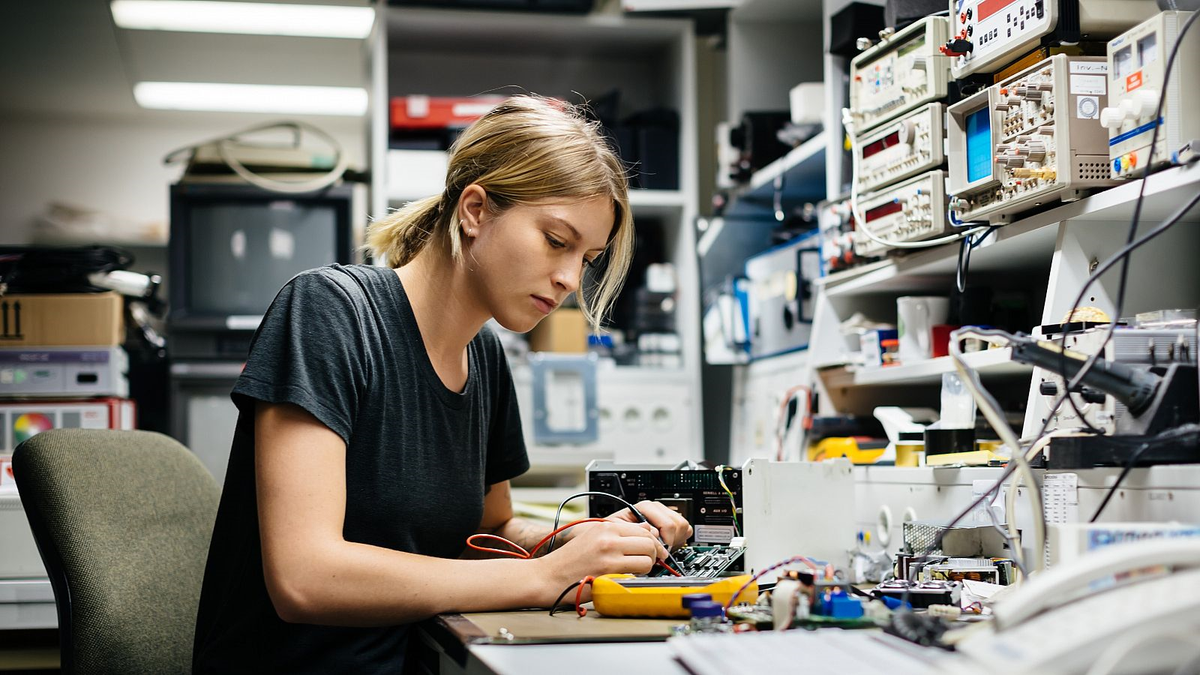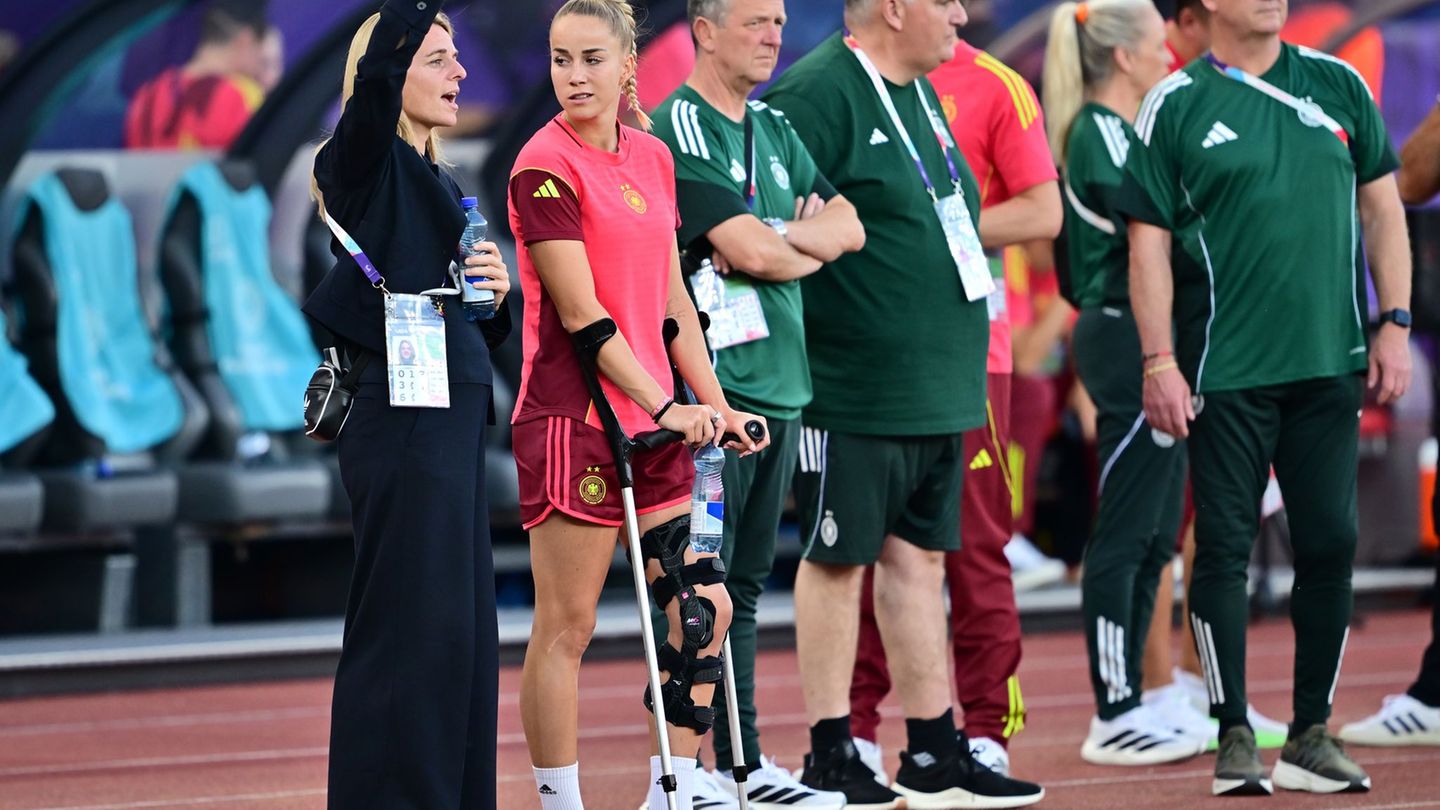The gender gap in the technology industry It is a reality and to close it, it is not enough to simply diagnose what is happening. Finding the courage to change the status quo is essential to foster leadership capable of promoting profound changes in areas such as education, the world of work, politics and culture, with the aim of building a more equitable world.
“Rather than a gap, it seems that women must face a great canyon. At the very least, this context should make us uncomfortable, and discomfort is always a good door to reflection. Reflection that begins, or should begin, long before we see ourselves as working women. Today, the same biases that we seek to avoid in AI algorithms are the biases that inhabit each and every one of the gaps that we live with every day and that cross culture, our daily economy, the territories and geographies in which we live, our history, education and families,” she says. Micaela Sanchez Malcolmpresident of the Civil Association Genres and one of the organizers of Women In Tech Argentinaan international movement with the mission of closing the gender gap and helping women adopt and take ownership of technologies.
Another key aspect is to understand the challenges in a differentiated way, identifying what is happening in each industry and what actions can be promoted in each one. To cite some examples: 37% of professionals in the fintech sector are women. The majority of women in this industry hold a management position (54%), while 20% are in senior management and one in ten is a CEO or founder of their company. In the world of eSports, according to the Game Developers Associationjobs related to electronic sports are mostly carried out by men, with only 11% of women participating.
image.png
“More and more organizations are working to close gender gaps. Not only through processes of making the problem visible, but also by promoting concrete actions that include the recognition of women in the market and industry, as well as their professional training, or even working with educational institutions to reduce the impact of gender stereotypes on girls, adolescents and young people from an early age,” she explained. Natalia Jasin, CEO and Founder of Bounty EdTech and the recent winner of the Best Ally category of the WOMEN IN TECH Global 2024 Award.
“It is a great honor to have obtained the recognition of Women in Tech in this category because at Bounty EdTech we believe that it is the only way to build a more fair and equitable future. The challenge is set; to overcome it we need all the actors in the ecosystem to get involved with the same objective: to reduce the gender gap in the digital world in general, taking as a spearhead the rise of AI and its impact on the entire planet,” she said.
Leading and inspiring, even against the wind
Jasin added that mentoring and ongoing training schemes are key to supporting women who are seeking to grow in this industry, but in a context of increasing uncertainty: “Programs like Women in Entrepreneurshippowered by Endeavor, allows us to create work and collaboration ecosystems, while providing training for those of us who decide to undertake in any field or industry and, above all, in such a changing and fast-paced world.”
“I have been working for more than 25 years in the market that is now known as Edtech (Education and Technology) and, in recent years, I have been working tirelessly to provide women with strategic tools to improve their professionalism and eradicate messages that continually reinforce the idea that ‘we are not good enough’ and that leadership positions are reserved for men. My belief is that women are capable of anything we set our minds to, the difference is that we do it by working as a team,” she said.
One of the programs promoted by Bounty EdTech is One Thousand Women in Artificial Intelligence (M1000IA). This is an initiative that also works with Intel, Positivo BGH and the National Technological University (UTN) with the aim of empowering 1,000 women in Latin America by democratising access to artificial intelligence and its practical use in the work and production environment. The second cohort began in August, but the results of the first one show a more than encouraging path:
- More than 30,000 women pre-registered for the program
- 800 women selected
- 100% certification (527 students participated in the first cohort and achieved certification)
- More than 50 strategic alliances with different public and private sectors
- Satisfaction with the course content and modality exceeds 92%.
Women are often the first to postpone their education to attend to care tasks, which is why support is key. The M1000IA program had a team dedicated to providing continuous support to students during the course and identifying possible reasons for absence from synchronous classes.
“The care tasks we take on are inversely proportional to the hours of experience we can develop, so our working hours are valued less and, in addition, we are assigned tasks of lesser complexity,” added Sanchez Malcolm.
“This initiative is a clear sign that there is a universe of women eager to enhance their skills, to re-convert their professional profile, to participate and lead spaces in the world of technology. But above all, there are many women with the capacity to build new leadership in the industry. To achieve this, we cannot expect changes to always occur from the top down.”Jasin stressed.
In this regard, Sanchez Malcolm added: “Let us think about how we, or our daughters, or nieces, or girls to whom we brought a gift, used to play. The reproduction of stereotypes does not escape objects that are often considered “innocent” such as toys. Neither in advertising, nor in family jokes, nor in school performances should we continue to reproduce that the C for girls stands for cook and for boys for champion.”
“We need changes in policies, culture and education, but we also need to hack the established order. How? By generating profound changes in our daily practices, challenging ourselves to continue learning constantly, forming networks with those we talk to on a daily basis and creating virtuous circles that allow us to design a more equitable future,” concluded Jasin.
Source: Ambito




